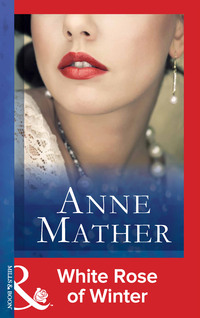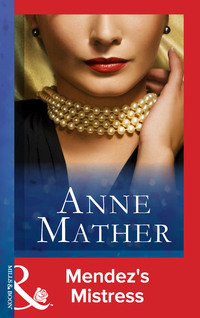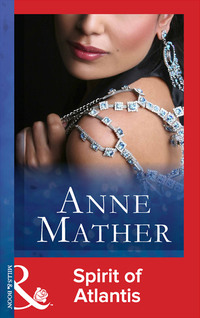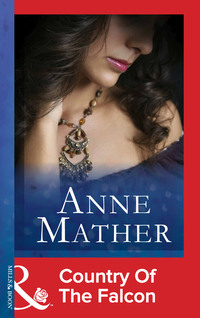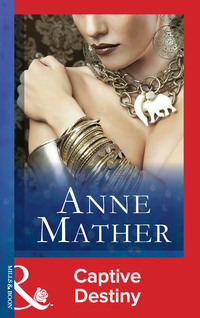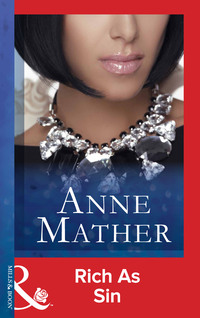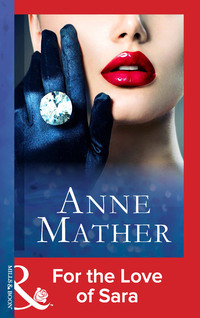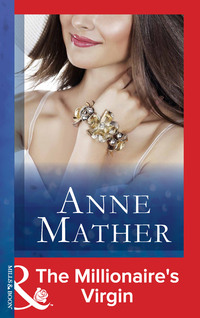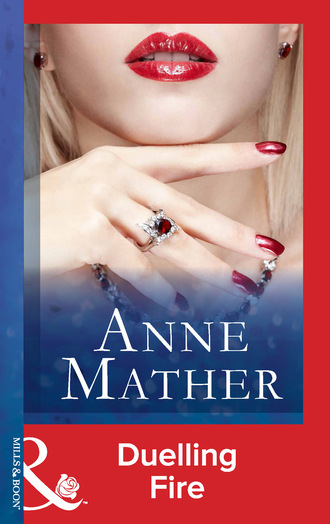
Полная версия
Duelling Fire
‘I didn’t know Aunt Harriet had a chauffeur,’ she tendered now, realising that if this man did work for her aunt, then it was no doubt foolish to antagonise him until she saw for herself how the situation developed, and then turned bright red when he burst out laughing.
‘What makes you think I’m the chauffeur?’ he exclaimed, when he had sobered. ‘Do I look like a chauffeur? I’m sorry, I’ll have to take stock of the way I dress if I do.’
Sara pressed her lips together. ‘I naturally assumed— —’
‘What did you naturally assume, I wonder?’ Dark lashes narrowed the grey irises. ‘Why should you think I was Harriet’s chauffeur? What did she tell you?’
‘Nothing about you, anyway,’ retorted Sara hotly. ‘And as to why I thought you were the chauffeur, I don’t see in what other capacity you could serve my aunt.’
‘Don’t you? Don’t you really?’ His lips twisted. ‘Well, don’t worry about it. All will be explained in the fullness of time.’
Sara shook her head. ‘I wish you’d tell me. I don’t want to make any more mistakes.’ She held up her head. ‘I didn’t realise there would be anyone else—what I mean is—I understood I was to be her companion. I thought she lived alone.’
‘Harriet? Live alone?’ He took his eyes from the road to stare at her incredulously. ‘My God, you really don’t know her, do you?’
Sara’s colour refused to subside. ‘Perhaps if you were a little less scathing, and a little more helpful,’ she ventured.
‘What? And spoil Harriet’s fun? Oh, no.’ He shook his head derisively. ‘Well, cool it. We’re almost there.’
‘Are we?’
Sara’s apprehensions increased as they left the village behind to plough farther into the rolling countryside. Acres of wooded hillside gave on to luscious green pastures, grazed by herds of brown and white cattle. Across the fields she could see the spire of a church, and the thatched roofs of other cottages, and here and there a white-painted farmhouse, looking totally at home in the landscape. It was a rural scene, a placid scene—but Sara’s thoughts were anything but placid as she neared her destination.
‘Where—where does Miss Ferrars live?’ she asked, her troubled thoughts urging her into speech. ‘The address was just given as Knight’s Ferry, Buford, Wiltshire. What is Knight’s Ferry? A village? Or the name of her house?’
‘That’s Knight’s Ferry,’ declared her companion flatly, as the road mounted a slight rise and they looked down on the turrets of a sprawling country mansion. ‘Didn’t you know? Harriet’s father was a wealthy man, and she was his only offspring.’
‘No!’ Sara could not believe it. She turned bewildered eyes in his direction. ‘I thought—I mean, I assumed—–’
‘—that she was some lonely old lady, in need of your care and protection?’ he finished for her drily. ‘Nothing could be farther from the truth.’
Sara shook her head and turned to look at the house again, but they were on the downward slope, and tall hedges obscured the view. All she could see was another house in the distance, standing on a knoll, which made it visible from the road. A larger house, she estimated, backed by an imposing sweep of firs, and with acres of parkland falling away to where she guessed her aunt’s house was situated.
She caught her breath, and her companion, misinterpreting her reaction, said cynically: ‘Yes, impressive, isn’t it? Linden Court.’ He paused. ‘Lord Hadley’s residence.’
‘Is it?’ Sara’s voice revealed her uncertainty, and as if taking pity on her, his eyes darkened with unexpected sympathy.
‘Poor Sara,’ he said, and her indignation at his casual use of her Christian name was superseded by other, more disturbing emotions. ‘You really don’t know what you’re letting yourself in for, do you? Just don’t let Harriet eat you alive!’
CHAPTER TWO
ANY response Sara might have made to this remark was thwarted by the sudden eruption of a horse and rider into the road in front of them. It all happened so quickly, Sara was full of admiration for her companion’s swift reactions as he stood on his brakes. The Mercedes swerved only slightly, the tyres squealing on the gravelly surface, and they halted abruptly only a few feet from the animal’s rearing hooves.
‘Bloody fool!’ Jude muttered savagely, thrusting open his door, and as he did so the rider swung down from his sweating mount to confront him.
Sara found that she was shaking, too, but she watched with some trepidation as the two men faced one another with apparent recognition. They were not at all alike, she acknowledged inconsequently. The man Jude was so dark and aggressive, the other man mousey-fair and conciliatory. It was obvious in the way he held up his hand in mitigation, and the disarming smile of apology that split his gentler features.
‘I’m most awfully sorry, Jude,’ Sara heard him say contritely, soothing the fretful horse with his hand on its muzzle. ‘I had no idea you’d be coming along here right at this moment. Juniper wanted to take the hedge, and dammit, I just let him.’
Jude shook his head impatiently, but he was evidently mollified by the other man’s attitude. ‘You’ll kill yourself one of these days, Rupert,’ he declared roughly. ‘This may be a quiet road, but it’s not a private one, and I don’t think your father would approve of being presented with a bill for a new Mercedes, do you?’
‘Heavens, no!’ the young man grimaced. ‘Pater and I are not exactly on the best of terms as it is, right now, and Juniper breaking a leg would be the last straw!’
‘Yes, well—–’ Jude’s expression was not incomprehensible, Sara thought, bearing in mind that the horse was not his concern. ‘So long as we understand one another, hmm? I wouldn’t want Harriet upset.’
‘Lord, no,’ the young man chuckled, and watching them Sara wondered what kind of a relationship two such opposites could have. That they knew one another very well was obvious. What was less obvious was what they might have in common.
As if becoming aware that they had an audience, the fair man suddenly turned and looked in her direction, and Sara pressed her shoulders back in the seat and endeavoured not to notice. But to her astonishment Jude, observing the other man’s interest, invited him casually to come and meet her.
‘This is Sara Shelley,’ he said, introducing them through the open window of the car. ‘Sara, this is Rupert Hadley, Lord Hadley’s son.’
Once again his use of her name went unremarked beneath Sara’s astonishment at the introduction. This was Lord Hadley’s son! The son of the owner of that magnificent stately home on the hill! She could hardly believe it, and while all her instincts urged her to get out of the car to speak to him, Jude’s indolent stance against the door prevented her. How on earth could an employee of her aunt’s be familiar with the son of one of England’s aristocracy? It didn’t make sense, unless her assessment of the situation was lacking some vital clue.
‘So pleased to meet you, Miss Shelley.’
Rupert Hadley had put his hand through the window, and with a feeling of disbelief Sara offered her own. His hand, despite his hard riding, was quite soft, and she guessed the leather gauntlets he wore protected his skin from any abrasion.
‘How do you do?’ she responded politely, not quite knowing how she ought to address him, and his lips parted broadly to reveal uneven white teeth.
‘Are you staying with Miss Ferrars?’ he enquired, making no move to go, but before Sara could reply, Jude interposed for her.
‘Sara is Harriet’s niece,’ he declared, his grey eyes challenging her to contradict him. ‘She’s—er—she’s come to stay with us for a while. Her father died recently, and Harriet’s her only relation.’
‘I see.’ Rupert Hadley was evidently intrigued by the combination of silvery-tipped lashes and long green eyes, but as if he was in charge of the situation, Jude chose to break up the gathering.
‘We must be going,’ he said, walking round the car to slide in beside Sara again, and she stiffened instinctively when he leant half across her to make his farewells to the other man. ‘See you later, Rupert,’ he remarked, and Sara was aware again of a certain proprietorial note in his voice. But the brushing of his shoulder against her arm and the lean hardness of his thigh pressed briefly against hers during the exchange robbed her of any other speculations.
Rupert Hadley watched them go, a rather stolid figure in his tweed hacking jacket and fawn breeches. He didn’t wear a hat, Sara noticed, and his fair hair lifted slightly in the breeze as they passed. But it was not this that caused her to look back over her shoulder. It was the sudden uncanny feeling that she had seen his face before, and she was still giving this consideration when they turned between stone gateposts and negotiated the narrow drive which led to the forecourt in front of the house.
Knight’s Ferry had probably originally gained its name from the fact that the River Rowan glinted in the late afternoon sunlight only a dozen yards from its doors. Sara guessed there had once been a ferry to cross the wide stretch of calm water, but no doubt time, and the erection of bridges, had robbed it of any usage. Still, she could not deny a surge of pleasure as she looked at the mellowed old building, with its ivy-covered walls and leaded dormer windows, the turrets she had seen earlier like some medieval reminder of the days when fortification was a way of life. The house belonged to no particular period that she could identify, and she surmised it had been added to over the years. Now it sprawled like a matron gone to seed, large and comfortable, but lacking in elegance.
Sara was admiring the gardens when the door to the house opened, and a woman appeared at the head of a short flight of steps. Immediately, her momentary sense of reprieve was over, and she turned her attention to where Jude was unloading her suitcases, silently begging for his intercession.
‘Sara! Sara, my child! How good it is to see you after all this time!’ Harriet Ferrars’ words were warming and disarming, and Sara’s gaze was drawn back to her as the woman advanced towards her.
Her memories of Aunt Harriet were vague, and in her brief experience people generally aged quicker than memory allowed. That was why, although she knew the woman could not be much more than fifty, she had expected someone who looked middle-aged and matronly, a little like the house, she mused, struck by the simple comparison.
But Harriet Ferrars did not look middle-aged or matronly. Indeed, if Sara had not known the truth, she would have estimated her age to be somewhere in her thirties, and that only because of her carriage and maturity. Her face and figure were those of a much younger woman. Her skin was virtually unlined, and the two-piece suit she was wearing, in dusky blue silk jersey, accentuated the slender line of her hips and the shapely length of her legs. Her make-up was faultless, her hair, a rich chestnut brown, worn in a loose casual style. She was little like the girl’s image of her, and Sara knew a moment’s trepidation for the things that Jude had told her.
Then she was embraced with genuine affection, the kisses that were delivered on both cheeks leaving a delicate fragrance of Eau de Lancome behind them. ‘Sara,’ Harriet said again, drawing back and shaking her head. ‘My dear, you are simply delightful!’
Sara coloured, as much from the knowledge that Jude was watching them and could hear every word as from any embarrassment at the effusive comment.
‘Thank you,’ she murmured, forcing a smile. And then: ‘It’s good to see you again, too, Aunt Harriet.’
‘Yes.’ Harriet held her at arm’s length for a moment, surveying her with a thoroughness Sara found quite disconcerting. But after a moment her aunt released her, and tucked a confiding hand through her arm.
‘I was so sorry to hear about your father, my dear,’ she said, broaching the subject Sara least wanted to talk about. ‘It must have been a terrible shock for you. That’s why I sent for you. One needs relatives at a time like this.’
‘Shall I put the cases in the rose room?’ asked Jude, interrupting them, and Harriet glanced round at him with a barely perceptible tightening of her lips.
‘You know as well as I do that that’s the room I’ve chosen for Sara,’ she declared, an edge to her voice, and Jude shrugged his shoulders rather mockingly as he bent to pick up the luggage.
‘Come along, dear.’ Harriet patted Sara’s hand and urged her towards the house. ‘It’s still cold, despite the sunshine. But I think you’ll find you’ll be comfortable here.’
‘I’m sure I shall.’ Sara wanted to say something, some words of gratitude, but it was difficult with Jude’s sardonic presence right behind them, and she waited until they had entered the spacious entrance hall before offering her awkward thanks.
‘My dear, don’t think of it.’ Harriet cast a thoughtful glance at Jude’s back as he strode vigorously up the stairs with two of the cases, and then gestured towards a door across the hall. ‘Come along. We’ll have tea in here. I told Janet to make it, as soon as I heard the car.’
Sara looked about her in some bemusement as they crossed the hall and entered a warm, attractive sitting room. Whereas the hall had been oak-panelled and a little dark, despite the rich red pile of the carpet, the room Harriet showed her into was light and airy, with long french doors that opened on to the garden at the back of the house. A low stone balustrade surrounded a flagged terrace, which in turn gave on to the gardens, and beyond them, the river.
The room itself was decorated in a bright, cheerful style, with chintz-covered armchairs and a long sofa. There were cabinets against the walls, housing a variety of china and ornaments, a kneehole desk liberally covered with papers, and bookshelves flanking the open fireplace, where a real log fire spluttered in the grate.
Harriet closed the door and then looked happily at her guest. ‘There now,’ she said. ‘Isn’t this cosy? Come along, take off your coat. I’m sure you won’t need it in here.’
Sara was sure, too. As well as the open fire, there were also radiators, and she guessed the crackling logs were just an attractive adjunct to the real heating system. Smiling, she unfastened the buttons of the warm suede jacket she had worn with corded pants, and revealed the cream woollen jersey she had worn underneath.
Harriet helped her off with her jacket, dropping it carelessly over the back of a chair before gesturing that Sara should take one of the armchairs that faced one another across the hearth. Sara did as she suggested, holding out her cold hands to the blaze, and Harriet came to sit opposite, smiling her satisfaction.
‘So, Sara,’ she said, resting her arms along the arms of the chair, long fingers with painted nails hanging over the end. ‘How was your journey? Not too arduous, I hope. Trains can be so unreliable, and whenever possible I use the car.’
‘It was all right.’ Sara spoke rather nervously. ‘The trains were quite punctual, actually.’
‘But we were not, is that what you’re saying?’ asked Harriet perceptively. ‘My dear, you must blame me. I simply wasn’t ready.’
‘Oh, no.’ Sara had no wish that Aunt Harriet should think her words were meant as a criticism. ‘I mean—I’d only been there about five minutes when Mr—er—Mr Jude arrived. I—I was very grateful to see him.’
‘Were you?’ Harriet’s lips tightened once more, as they had done outside, but she made no comment about her chauffeur. Only he wasn’t her chauffeur, Sara reminded herself tensely, realising she had still not discovered his real designation.
A tap at the door heralded the arrival of the maid with the tea. An elderly woman, with dour Scots features, wheeled a laden trolley across the patterned carpet, and set it firmly in front of her mistress.
‘This is Janet,’ Harriet announced, smiling up at the woman disarmingly. ‘Janet, this is my niece, Sara Shelley. Isn’t she lovely?’
If Sara was embarrassed by her method of introduction, Janet seemed unaware of it. ‘Pleased to meet you, miss,’ she declared, her tone belying the greeting, and in an accent unimpaired by however long she had lived in England. Then, without waiting for any response, she marched out of the room again, leaving Sara with the distinct impression that she did not approve.
‘Don’t mind Janet,’ Harriet said quickly, drawing the trolley towards her and taking charge of the teapot. ‘She’s been with me too long, I’m afraid, and familiarity breeds contempt, don’t they say?’ She smiled, and resumed setting out the teacups. ‘Now, what will you have? Cream and sugar? Or are you like me, and prefer your tea with lemon?’
‘Just cream, please.’ Sara had never acquired a taste for English tea served with lemon. No matter what the country of its origin, it did not taste like the tea she and her father used to enjoy in Nagpur, or perhaps it was the surroundings that made that drink so distinctive.
The trolley also had plates of small sandwiches, scones and a rich madeira cake, and a variety of biscuits. Sara reflected, as she munched a smoked salmon sandwich, that anyone with a weight problem would have to be careful here, and although she had never been troubled that way, she had never treated food as a ritual before. Except when Aunt Harriet had taken her out to tea, she amended, brushing a crumb from her lips, as visions of thick clotted cream and Cornish strawberry jam floated before her eyes.
As she took another sandwich she wondered apprehensively if the man Jude would join them for tea. His attitude had been quite familiar, but there were only two cups, and as the minutes stretched Sara started to relax.
‘You were in India when it happened, weren’t you?’ Harriet said, after pouring herself a second cup of tea. She looked at Sara sympathetically. ‘You don’t mind me asking, do you, dear? Only I think it’s best if we get it out of the way first, don’t you?’
‘Right.’ Sara nodded. ‘Yes. We were in Calcutta, actually.’ Her throat tightened. ‘He was covering the elections.’
‘So I heard.’ Harriet’s tongue appeared, to moisten her upper lip. ‘It must have been terrible for you—not knowing anyone, not knowing the language …’
‘Oh, I knew people.’ Sara steeled herself to talk of it. ‘We had a number of friends there. And I knew a little of the language. We’d been there before, you see.’
‘Yes, but—–’ Harriet sought for words, ‘it’s not like your own country, is it? Not like England.’
‘As a matter of fact, I was glad,’ Sara confessed huskily. ‘The formalities were over so much sooner there. They have to be. The climate, you know—–’
‘Of course.’
‘As soon as the cause of death had been disclosed—they conducted a post-mortem, you see—the—the body—had to be disposed of. I chose cremation. It was what he would have wanted.’
‘My child, how awful for you! Having a funeral without any mourners!’
Sara shook her head. ‘There were mourners. The—the officials who—who knew him, and other press men—–’
‘All the same—–’ Harriet sighed. ‘There was no question of bringing his body back to England, I suppose?’
Sara pressed her lips together for a moment. ‘I don’t think he would have wanted that. He—he never regarded England as his home, not really. He was a nomad.’ She took a deep breath. ‘I think he probably subscribed to the theory that his life was like the arc of an arrow. He wanted to remain where it rested.’
Harriet nodded. ‘What can I say? You knew him so much better than anyone else. It had to be your decision.’
‘Yes.’
Sara sighed, and with a characteristic lift of her slim shoulders, Harriet shrugged the unpleasant topic aside. ‘Enough of that,’ she declared, and Sara was relieved she had not had to explain the circumstances of Charles Shelley’s death. For the present at least her aunt was prepared to let sleeping dogs lie, and Sara knew a sense of gratitude for her tact and understanding. Remembering what Jude had said about Aunt Harriet, she also felt a kindling of resentment. For whatever purpose, he had tried to influence her against her aunt, and she despised his reasons for doing so. He had almost succeeded in convincing her that her own opinion of Miss Ferrars was faulty, and that the only reason Harriet had for bringing her here was to satisfy some motive of her own.
‘So tell me,’ her aunt was continuing, ‘what have you been doing with yourself since you got back to England? You wrote that you’d been living with a friend. Did you find a job?’
‘I’m afraid not,’ Sara grimaced, glad to be back on firm ground again. ‘Jobs aren’t that easy to come by, especially for someone like me, with practically no qualifications.’
‘No, you’re right.’ Harriet lifted her cup and saucer and leaned back comfortably in her chair, folding her legs in such a way that the side vents in her skirt exposed a considerable length of thigh. ‘So you were quite relieved to get my invitation? I haven’t dragged you away from any exciting career in London?’
‘Heavens, no!’ Sara’s mouth curved upward. ‘And I was pleased when you wrote to me. Although whether I’ll be suitable for the position you mentioned is something we’ll both have to find out.’
‘Oh, you’ll be suitable, won’t she, Harriet?’
The hateful taunting voice of the man who had driven her from the station suspended their conversation, and glancing round Sara saw him, propped idolently against the frame of the door. He, too, had discarded his leather jerkin to reveal a close-fitting navy silk shirt, and as she watched he straightened away from the door and sauntered confidently into the room.
‘Really, Jude, I wish you’d knock!’ exclaimed Harriet tersely, casting a half apologetic smile in Sara’s direction. ‘If you want some tea, you’ll have to get a cup. Janet didn’t expect us to be interrupted.’
‘No, ma’am. I see, ma’am. Sorry, to be sure, ma’am. But I’ve taken the miss’s cases to her room, and I wondered if there’d be anything else, ma’am!’
‘Really, Jude, you’re not very funny!’ Harriet’s expression mirrored her exasperation, but instead of ordering him out of the room as Sara had expected, she expelled her breath shortly, and resumed drinking her tea.
Jude stood between the chairs, his hands pushed carelessly into the low belt of his jeans. He exuded an air of raw masculinity in that essentially feminine room, and Sara, much as she would like to, could not quite forget it.
She cast a hasty glance up at him, only to find he was looking at Aunt Harriet, and Sara’s cheeks suddenly burned at the insolent manner of that appraisal. He was looking at her as if—as if—Sara’s mind could go no further. But she wished with all her might that Aunt Harriet would pull her skirt back over her knees.
‘Where were we?’
Harriet’s encouraging words brought Sara up with a start, and she clattered her cup noisily as she set it down on the trolley. ‘You—er—you were about to tell me what my duties will be,’ she prompted, trying to ignore their unwelcome visitor, and then looked up with irritation when he smothered a stifled laugh.
‘Jude, if you have nothing better to do than stand here, making a fool of me, I wish you would leave,’ Harriet declared, mildly Sara thought. ‘Don’t you have anything useful to accomplish? Like—changing for dinner, for example!’
‘Touché!’ Jude’s harsh mouth softened into irony. ‘Okay, Harriet, I’ll leave you to—instruct our guest in her—duties.’ He paused. ‘You might be interested to know, however, that she met the heir this afternoon.’
Sara blinked. What did he mean? She met the air? It didn’t make sense. But Harriet was looking up at him now with scarcely concealed agitation.
‘What do you mean?’ she exclaimed. ‘Jude, what have you done? How could she—how could Sara have met anyone between here and the station?’
Jude rocked back on his booted heels. ‘Hadley almost straddled the bonnet of the car,’ he remarked indifferently, and Sara realised he was referring to the accident they had almost had. ‘Crazy young idiot! He could have killed us all.’
‘Might I remind you, that “crazy young idiot” is only eight months younger than you, Jude,’ Harriet retorted. Then she turned back to Sara. ‘What did you think of Rupert, my dear? A handsome young man, isn’t he?’


